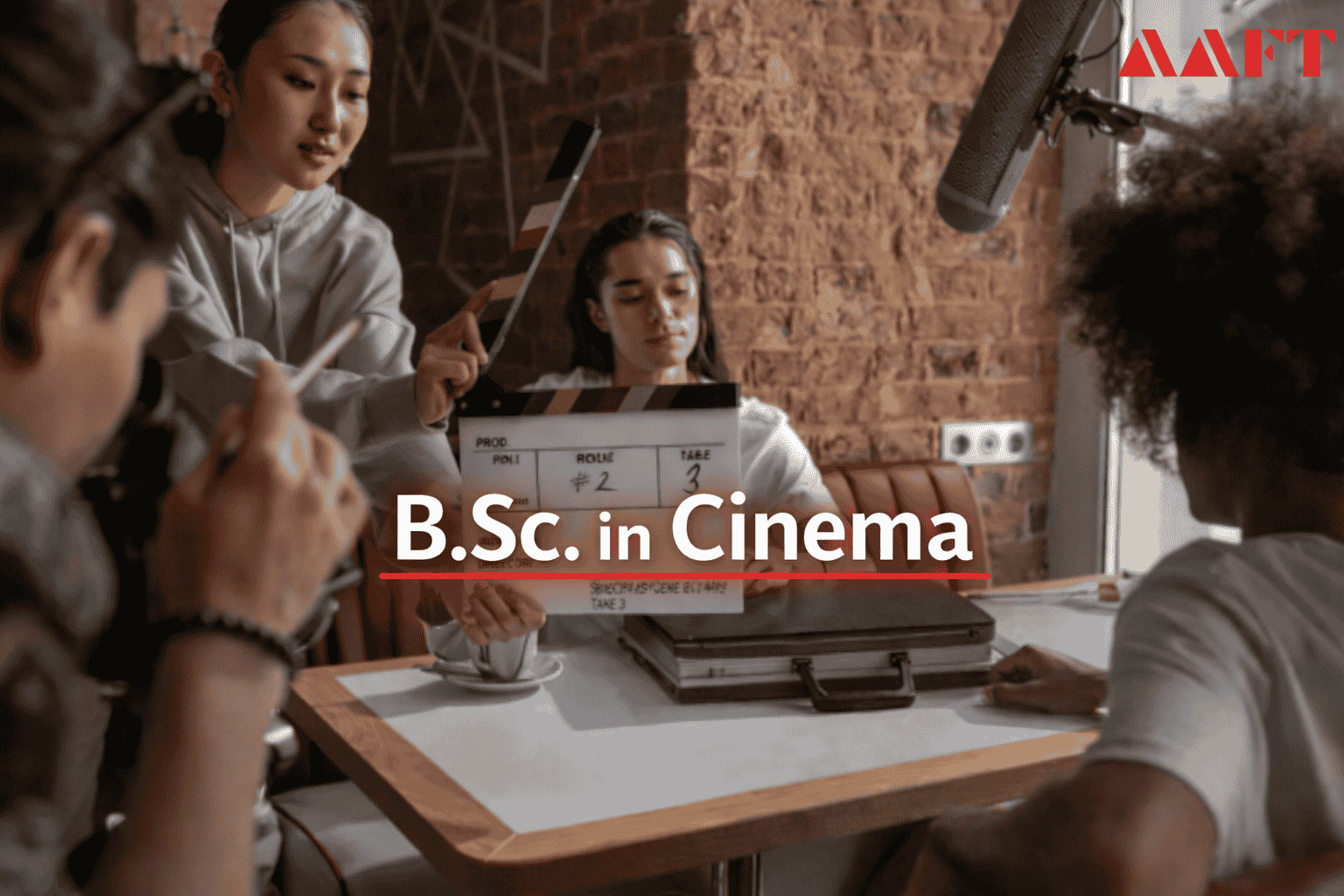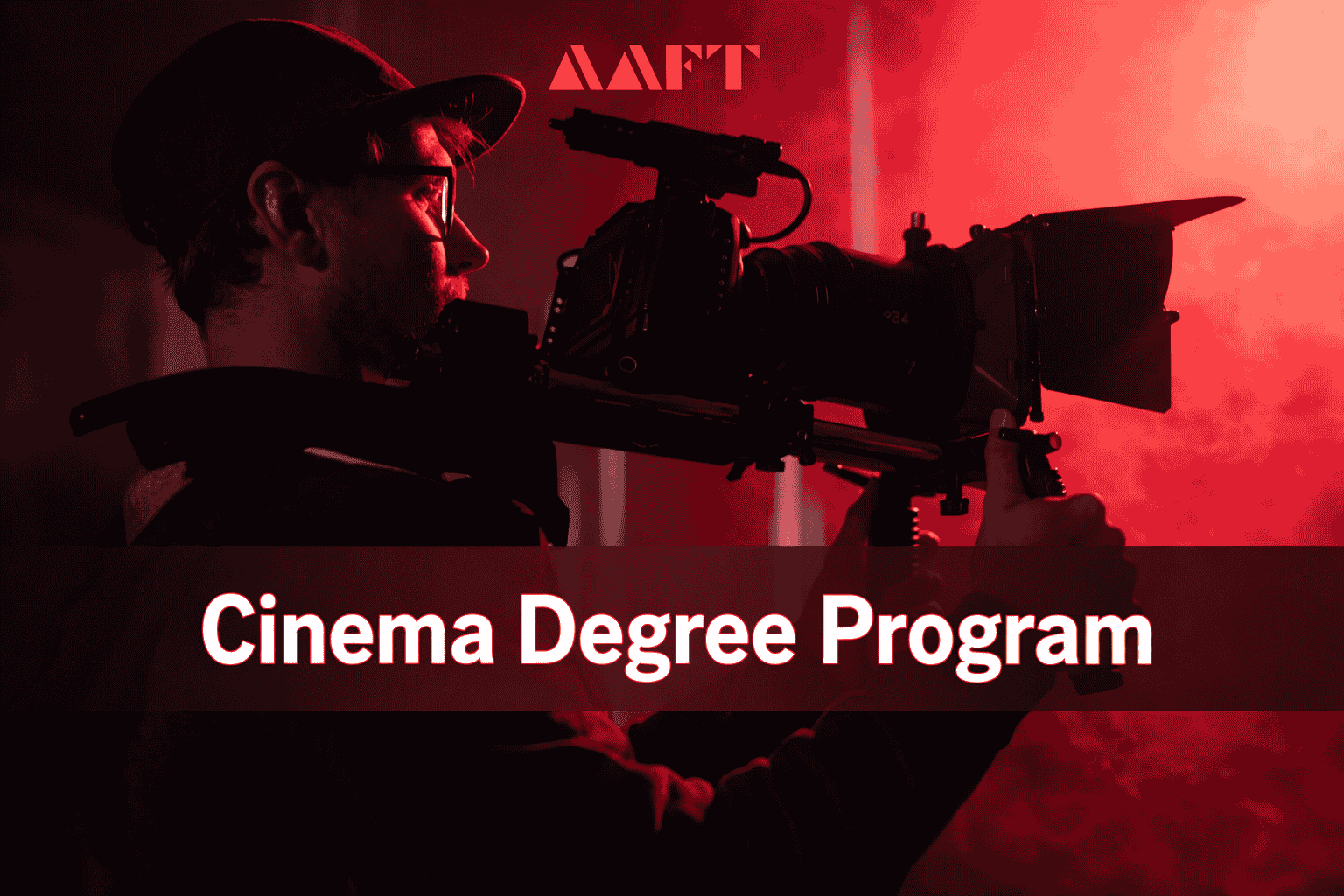How to Become a Cinematographer After 12th
Ever since the first film was made and screened in the late 1800s, cinema has made its way into our living rooms, and our hearts. With time and technological innovations, the art form evolved and became one of the most popular forms of entertainment globally. Films continue to be an indispensable part of our lives. We fall in love with characters, feel their joy and grief, quote movie dialogues in relatable situations, share movie-related memes, and even plan our dream vacations and outfits based on our favorite films.
So, if you are someone who is intrigued by the science behind making a film and loves to play around with a camera, you could check out the cinematography courses available around you.
Read Also: Creative Education in the Digital Age: Challenges and Opportunities
What is Cinematography?
Cinematography uses elements like camera angles and movements, light, colors, and frames to narrate a story or present a thought in a way that evokes emotions in the viewers.
It is the backbone of filmmaking. It enhances the visuals, guides the audience’s mood, and sets the precedence for the underlying emotion. Creative use of camera movements and other elements can make storytelling more vivid, realistic, and relatable. It requires artistic and technical proficiency and adaptability to make a rewarding career in cinematography.
Ensure You Have A Basic Understanding of The Discipline
Before you enroll in a professional course, make sure you research the discipline well and have an idea about the curriculum. Understand the technical and digital skills that you will need to work on and explore different theoretical topics you might have to study.
Read Also: India’s Highest Paying Certificate Courses for 2024: Top Job Opportunities
You can read books on cinematography, or watch critically acclaimed Indian and International movies to get an idea of camera movements, use of light and shadow, framing, and other elements. The drive to stay up-to-date and get acquainted with the basics of the field before a course in cinematography will come in handy in entrance tests/PIs and help you get ahead of the curve.
Take a Look at the Courses
The eligibility criteria for UG courses is 10+2 with any subject combinations with a 50% or more aggregate score from a recognized board. PG programs require you to complete your graduation (10+2+3 or 10+2+4) from a recognized institute/university. Institutes might conduct eligibility or aptitude tests and PIs as a part of their selection procedure.
B.Sc. in Cinema, Specializing in Cinematography
Spanning 3 years, this course provides a holistic understanding of cinema and cinematography as a discipline. Along with the history and evolution of cinema, you can explore filmmaking through visual storytelling techniques, an understanding of camera, lighting, digital imaging, and other technologies. You will be introduced to different techniques, types of cuts, photography, make-up, and costumes.
Editing and other post-production operations, relevant software, and working with a digital workstation are integral to the course. Making a documentary/showreel/short film, and other project and internship opportunities would help you adapt to the needs of the industry as well.
Read Also: Film Making Courses After 12th: Course Details, Fees, and Eligibility 2024
M.Sc. in Cinema, Specializing in Cinematography
It is a 2-year degree program focusing on theories in filmmaking, introduction to the fundamentals of cinematography, getting acquainted with the elements of cinema, and understanding the evolution of films. The technical skills involve a detailed understanding of camera angles, movement, lighting, and different types of equipment. You would explore the art of screenwriting, understand digital tools, and learn to produce a documentary/short film from scratch.
The all-encompassing, advanced course is aimed at facilitating the development of artistic and technical skills that would help you excel in the professional realm.
Diploma and Certification courses
Depending on the nature, depth, and specialization of the program, certification/diploma courses can span from 3 months – 2 years. These brief, comprehensive courses provide an insight into the functioning of the industry and help you get familiar with the theoretical and applied knowledge.
Controlling cameras, executing photo and video shoots, handling post-production software, and having a thorough knowledge of the elements and principles of cinematography are some of the key areas you would cover. With the skills you master and the level of expertise you achieve, you can build an impactful portfolio and have a chance to work with some of the leading companies.
Focus on Developing Skills
Cinematography is a skill-oriented profession, and given the ever-evolving technology in the discipline, you will need to constantly upskill yourself and keep up with the dynamism.
Read Also: Difference Between Screenwriting and Scriptwriting
- Camera and Lenses – Since the industry is rather competitive, mastering the fundamental skills of cinematography is crucial. Experimenting and exploring with camera angles, movements, filters, and other technical aspects of operating different cameras, and a detailed understanding of lenses is key to becoming a proficient cinematographer.
- Software – Modern filmmaking is quite dependent on digital tools. A deep understanding of different types of software and the ability to operate them are integral to the discipline. The array of digital aids includes software for camera control, color grading, 3D rendering, video/sound editing, pre-visualization, and other post-production software. While cinematography curriculums incorporate the major tools into their syllabus, self-exploration can be helpful to further digital competency and get acquainted with different digital workstations.
- Creative Storytelling – Creative storytelling incorporates all 5 Cs of cinematography – camera angles, continuity, close-ups, cutting, and composition. A comprehensive knowledge of all of these aspects and the ability to use them depending on what the script/story demands is what’s going to distinguish you as a cinematographer. Narrating a story through visuals also involves creative use of color schemes, sound effects, appropriate use of the rule of 3rds, and much more to make the characterizations successful and effectively communicate the thoughts behind a story.
- Soft Skills – Like any other creative professionals, cinematographers too need to work in teams. They work alongside DoPs, art directors, sound designers, and other technical and creative professionals. Building a meaningful story requires all the team members to be on the same page, and to effectively communicate ideas among themselves. Being able to collaborate, communicate, critically analyze problems, and active listening are some of the key skills you must have to navigate the industry.
Industry Experience
Most professional cinematography courses provide internship opportunities. These exposures help you gain experience, observe the industry, and understand how it functions. It is also a great way to connect with industry experts and fellow cinematographers. You can compile the best of your work and apply for internships with production companies and independent cinematographers. Assisting professionals could help you gain practical knowledge and hands-on experience with equipment and some of the latest software.
Create a Strong Portfolio
Strong and impactful portfolios speak on behalf of you and provide a glimpse of your work – skills, talents, and perspectives in cinema – to potential clients and recruiters. Shortlist the best projects, touch on all the different skills that you might require in the industry, and integrate them into a showreel, portfolio, or short film/documentary.
Read Also: Top 20 In-Demand Job Oriented Courses for 2024
You can then connect with companies and hiring managers, send out cold emails, or collaborate with a filmmaker by sharing the portfolio and work samples with them.
Networking and Connecting With Potential Recruiters
Networking, industry exposure, and building and updating your portfolio go hand in hand – you cannot successfully do one without the other. Optimize the visits to screenings, attending workshops, seminars, expert lectures, and participating in classroom projects by connecting with the professionals you meet. You can also use different social media platforms, join communities, online groups, and forums, and reach out to the cinematographers whose work you admire.
Once you are satisfied with the portfolio that you have created, you can circulate it in your network and look for work opportunities.
Conclusion
The art of making films and engaging the audience will always be counted among one of the greatest achievements of our civilizations. The larger-than-life masterpieces mind-boggling thrillers and noir movies, or good old wholesome watches, cinema has been at the center of our entertainment for at least 100 years.
Filmmaking, however, is a complex process involving a range of meticulous steps. AAFT’s School of Cinema provides a range of opportunities for you to learn the nuances of filmmaking. UG and PG-level cinematography courses and other related programs are designed to provide a glimpse of the industry. Our rigorously planned curriculum prides itself on a detail-oriented, project and training-based syllabus that equips students with all the necessary tools and helps them keep up with the evolving industry standards.











